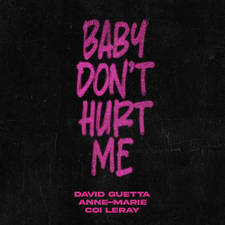Rogue Trader Who Sold Fakes Is Jailed
A rogue internet trader from Portsmouth who sold fake versions of gadgets from top brands has been jailed.
After complaints from customers about dodgy products, Portsmouth City Council investigators raided his premises and found thousands of counterfeit Apple, Sony, Nintendo, Sennheiser and Monster items.
Michael Reeder, 35, of Carbis Close, Port Solent, Portsmouth, was convicted last month (19 March) after a complex 18-month operation by the council's trading standards team. Reeder was sentenced at Portsmouth Crown Court today (19 April) to two and a half years in jail. He has been told he will serve a minimum of 15 months.
Reeder denied 13 offences under the Trade Marks Act but was found guilty of all of them.
Customers complained to trading standards, and to Monster and Sennheiser, about headphones bought from Reeder's Odds and Pods website. Some were good copies, but customers noticed minor packaging discrepancies, and faults such as buzzing and poor quality sound.
In February 2011, council trading standards officers raided Reeder's business in Fratton, Portsmouth and his home and seized more than 2,000 items, including fake Monster and Sennheiser headphones and counterfeit Apple accessories.
Evidence showed that Reeder imported goods through a contact in China, who was not an authorised supplier and whose authenticity he did not check.
In August 2011 Reeder told the officers he had stopped trading, but a customs seizure at East Midlands Airport, of fake Monster headphones, produced another lead. Officers discovered Reeder was still in business, with a new website called Nice Cans.
More raids, in September 2011, produced a haul of more than 1,500 items, including fake Monster, Sennheiser and Sony headphones, plus counterfeit iPhone cases, PlayStation controllers and Wii accessories.
Peter Emmett, trading standards manager for Portsmouth City Council, said:
"We're delighted with the outcome today, as it demonstrates to traders, like Michael Reeder, that you cannot rip off consumers and get away with it.
"Everyone involved worked incredibly hard to get this to court. Dealing in counterfeit goods is a serious crime and the sentence imposed reflects the damage that Michael Reeder has caused to both consumers and trade mark holders.
"The court took the view that this was fraud from the outset and trading standards will continue to actively pursue illegal trading."
Alan Cufley, head of service for trading standards, said:
"This was a major investigation and involved an immense amount of work by council trading standards officers to bring forward this prosecution. We are extremely pleased that Reeder has now been found guilty of the charges brought against him.
"Customers paid for genuine goods but were sold counterfeits so he could make more profit. I am glad that we could take the necessary steps to prevent him continuing to trade in counterfeits. While we will never know how many people he ripped off, superb work by our officers has managed to put a stop to his activities."
Mr Emmett added: "This has been the most complex and difficult investigation ever undertaken by the team, producing more than 2,000 pages of evidence, but we got there in the end."
The customers who gave statements were:
• a father who bought Sennheiser earphones as a Christmas present for his child
• a student who bought fake Monster Beats headphones
• a student who bought fake Nintendo Wii controllers
• a Bristol school who ordered a batch of Sennheiser headphones
Camilla Herron, global brand protection manager with Monster USA, flew to the UK to attend two days of the six-day trial. She said:
"We're very grateful to the council for its work. It was a privilege to see British justice in action. People who peddle fake goods are a worldwide problem: damaging business reputations, funding the black economy and undercutting legitimate traders who play by the rules."
A court hearing on 21 June will look into confiscating the money he made from his activities.
He was already subject to a court enforcement order taken out by the council in 2009, imposed when he failed to supply purchases on time and give refunds.






